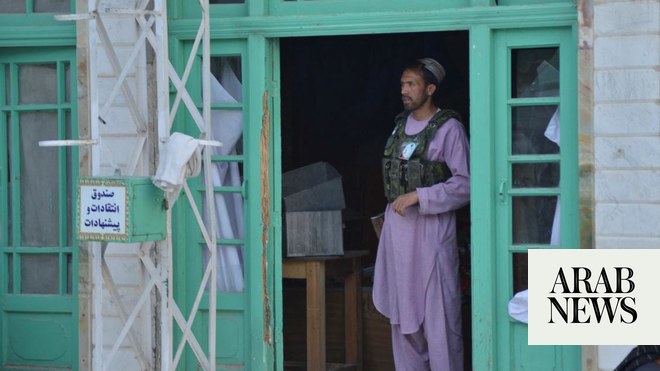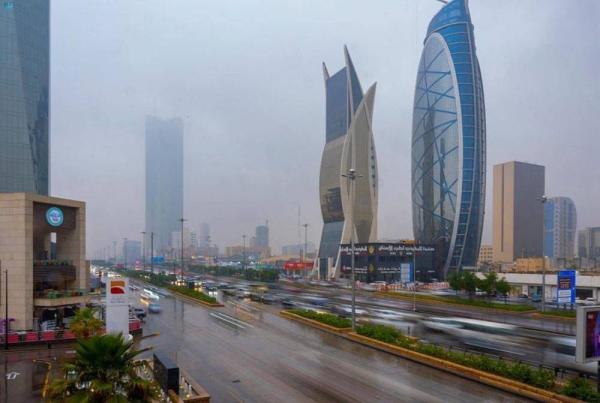
The developments known as the Arab Spring brought lack of stability, security and violence to a number of Arab countries and led to the fall of governments in Egypt, Yemen, Libya, Tunisia and Algeria. It prepared grounds for revival of the extremist organization Muslim Brotherhood and its coming to power in a number of countries such as Egypt and Tunisia.
Leaders of Muslim Brotherhood and other groups linked to this organization also eyed other countries for chances of capturing power. They used these events and attempted to spread their influence and power everywhere. Clashes intensified between freedom-loving nations and groups promoting political Islam.
This is why the people of Egypt rose up against the Muslim Brotherhood. The government formed by Muslim Brotherhood and led by Mohammad Morsi was overthrown and Egypt was able to save itself from the quagmire of extremism with help of countries that cared for the stability and calm of the region.
It was then the turn of Tunisia. Following the freedom struggles of people and fall of the Ben Ali government, the country was falling to the Islamist party Ennahda but the struggle for emancipation from extremism began so that the country could once more go towards democracy and freedom which is a demand for all the people.
Defeat of the Muslim Brotherhood and collapse of its newly-found bases in Egypt and Tunisia was a hard blow to the organization and created serious challenges for the groups linked to it. With the passing of time and the continuation of struggle against extremism in various countries of the region, things are much harder for groups linked to the Muslim Brotherhood. Yet, many leaders of the group left for Türkiye and Qatar and have tried to continue their political activities from there.
Even though the countries of the region have repeatedly warned about the danger of Muslim Brotherhood leaders being active in Türkiye and have asked for an end to their threatening activities, the Turkish government didn’t take these warnings seriously. Only after it felt a security threat did it finally decide to impose many limitations on their movements and also attempt to improve relations with Arab countries of the Persian Gulf region and Egypt.
The relations between Cairo and Ankara had gone cold when Türkiye, opposing the demands of Egypt and other Arab countries in the region, gave refuge to fugitive leaders of Muslim Brotherhood in Türkiye and didn’t stop their political activities.
Türkiye’s approach to the Muslim Brotherhood then changed. The leaders of the organization found themselves with many limitations and searched for another option to continue their activities. With the Taliban coming to power in Afghanistan, there is new ground for the return of terrorist and extremist groups in this country. The leaders of Muslim Brotherhood, who were mired in disappointment and hopelessness, saw Afghanistan as the best choice to resume their activities and started working fast to establish ties with Taliban, who are themselves in isolation and looking for new allies and partners to save themselves.
To reach this goal, contacts between leaders of Muslim Brotherhood in Türkiye and Taliban leaders began and high-ranking delegations representing both sides traveled to Türkiye and Afghanistan. This included the trip of a Taliban delegation headed by Zabihullah Mojahed, Taliban’s spokesperson, to Türkiye and many trips by Muslim Brotherhood leaders from Türkiye, Palestine and Sudan to Kabul.
We shouldn’t forget that Muslim Brotherhood, in more than four decades, has made deep links with various Jihadi and fundamentalist groups in Afghanistan and both sides have played a role in the development of terrorism and regional and trans-regional extremism.
There is no doubt that partnership between Muslim Brotherhood and extremist groups linked to the Deoband school was the main factor that led to the emergence of extremist and terrorist groups. The ideas of Sayyid Qutb — especially his books such as In the Shade of Quran and Milestones — have an affinity with the strict Deobandi ideas and have led to violence and clashes amongst Muslims. Many experts believe that terror groups such as Al-Qaeda and ISIS have risen from this intellectual chaos.
It now seems that the Muslim Brotherhood and Taliban (the most extremist group linked to the Deoband school) aim to work together once more and intend to use Afghanistan, which has now turned into a terror hub under Taliban rule, as a staging ground from which to threaten countries of the region and the world.
The recent trip of Muslim Brotherhood leaders under the name of “Ulema and clerics” to Afghanistan and their many meetings with Taliban leaders in Kandahar and Kabul is a proof in case and shows that the world might soon face threats from new terrorist groups in addition to its conflict with current terror groups. There is no doubt that partnership between Muslim Brotherhood and Taliban has severe and dangerous consequences and its continuation will lead to thousands more innocent people becoming victims. Just as the world was threatened by Al Qaeda and ISIS before, the world could face more violence and terror this time around too.
The world should thus seriously consider the issue of Muslim Brotherhood and Taliban working closely with each other and act decisively to stop the growth of this large threat. If this is not taken seriously, it could have dangerous consequences for the world. The world has not forgotten the catastrophe of 9/11, the violence and killing by ISIS and beheadings by the terror group Boko Haram in Africa.
Now, too, the meetings between Taliban and Muslim Brotherhood leaders should be taken seriously. The joy of Muslim Brotherhood leaders from Taliban coming to power and their praise for them shows that the two groups are on the path of partnership and aim to turn Afghanistan into a base for their extremist and terrorist activities.
Dr Ali Mohieddin Qaradaghi, Secretary General of the International Union of Muslim Scholars, used the website of this organization to express his optimism about the developments of Afghanistan following Taliban’s rise to power. He celebrated the leaving of occupying forces and victory of the Taliban. In one of his speeches, he said that if the government of Taliban, which he takes as an example of divine justice, was to be defeated, this would be a great loss and an excuse to the “unbelievers” to claim that Muslims can’t create their own regimes or take affairs into their own hands.
In its meetings with Taliban leaders, the Muslim Brotherhood aims to encourage the Afghan group to retreat from its decisions to ban women from education and work. They thus hope to make a new face for Taliban and then lobby in various regional and international circles and call the world to support the Taliban regime and its recognition and thus prevent its isolation and fall. The Muslim Brotherhood can then use this opportunity to organize under the shadow of Taliban rule and attempt to reach its goals and causes which will mean threats and violence for the world.












